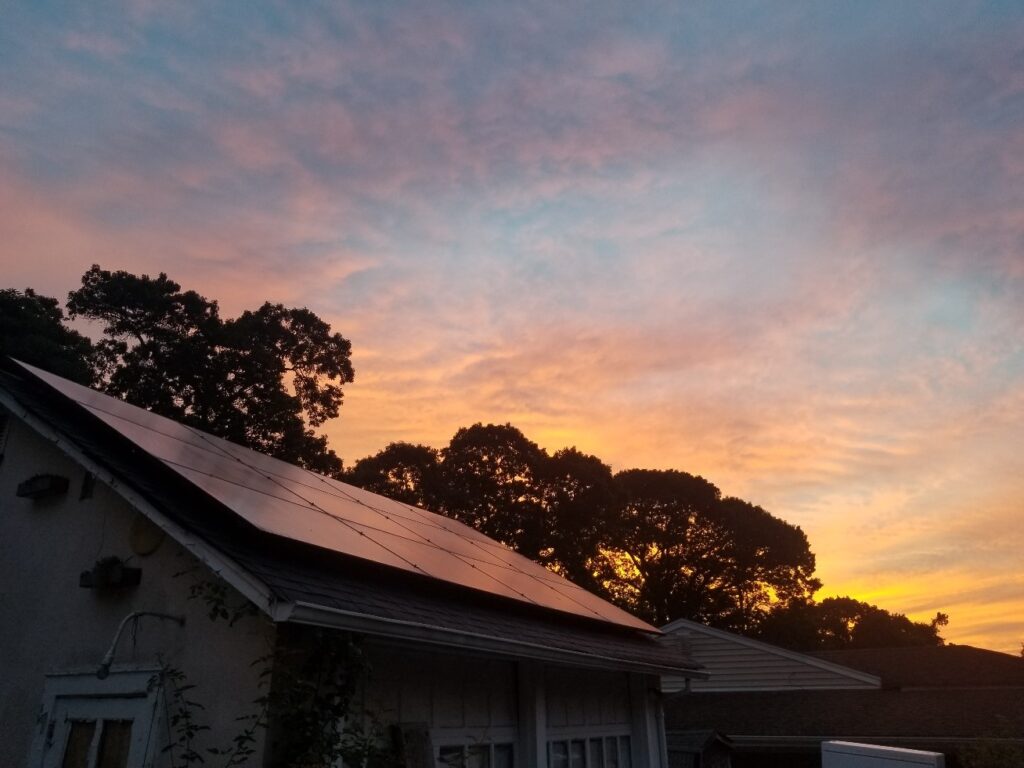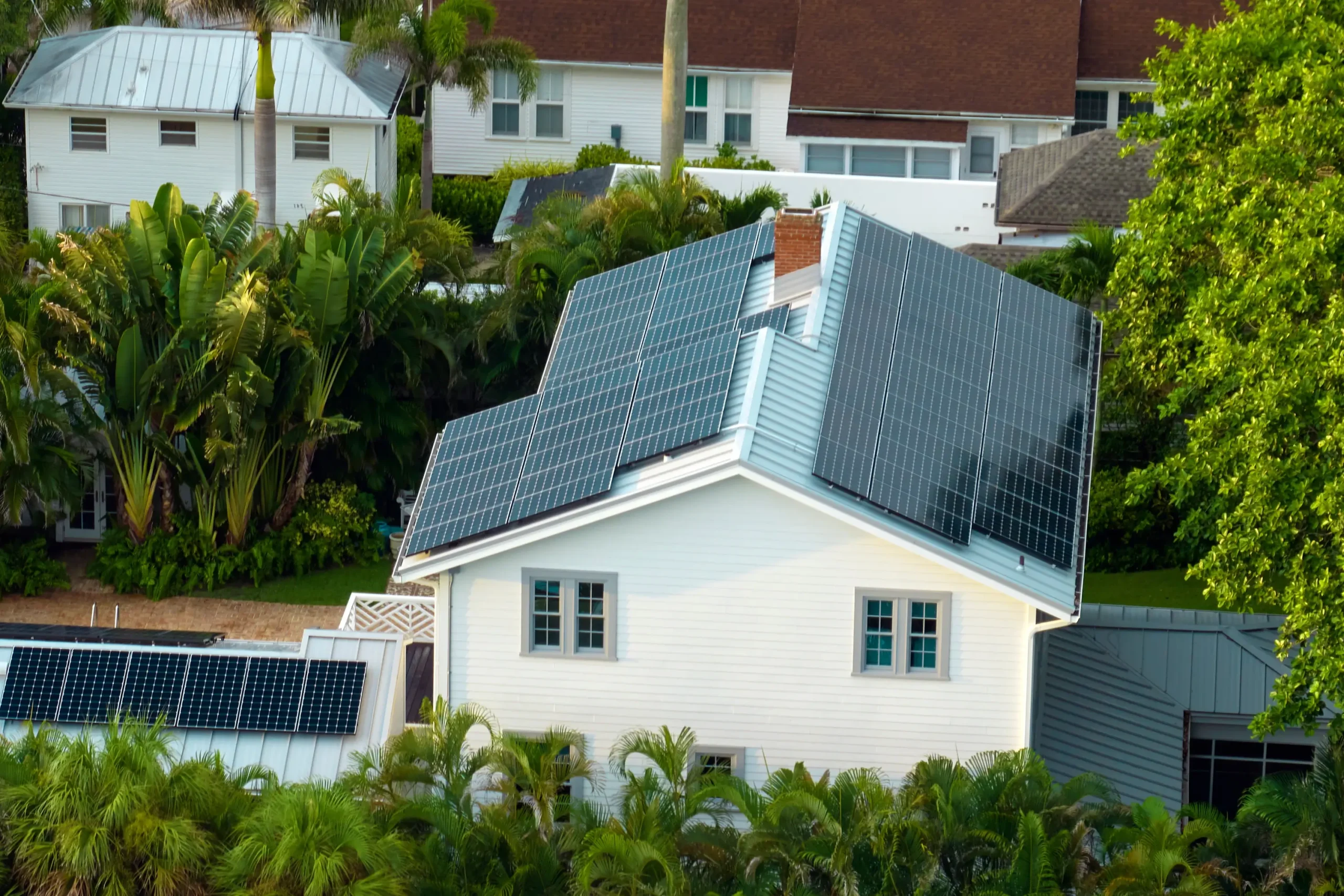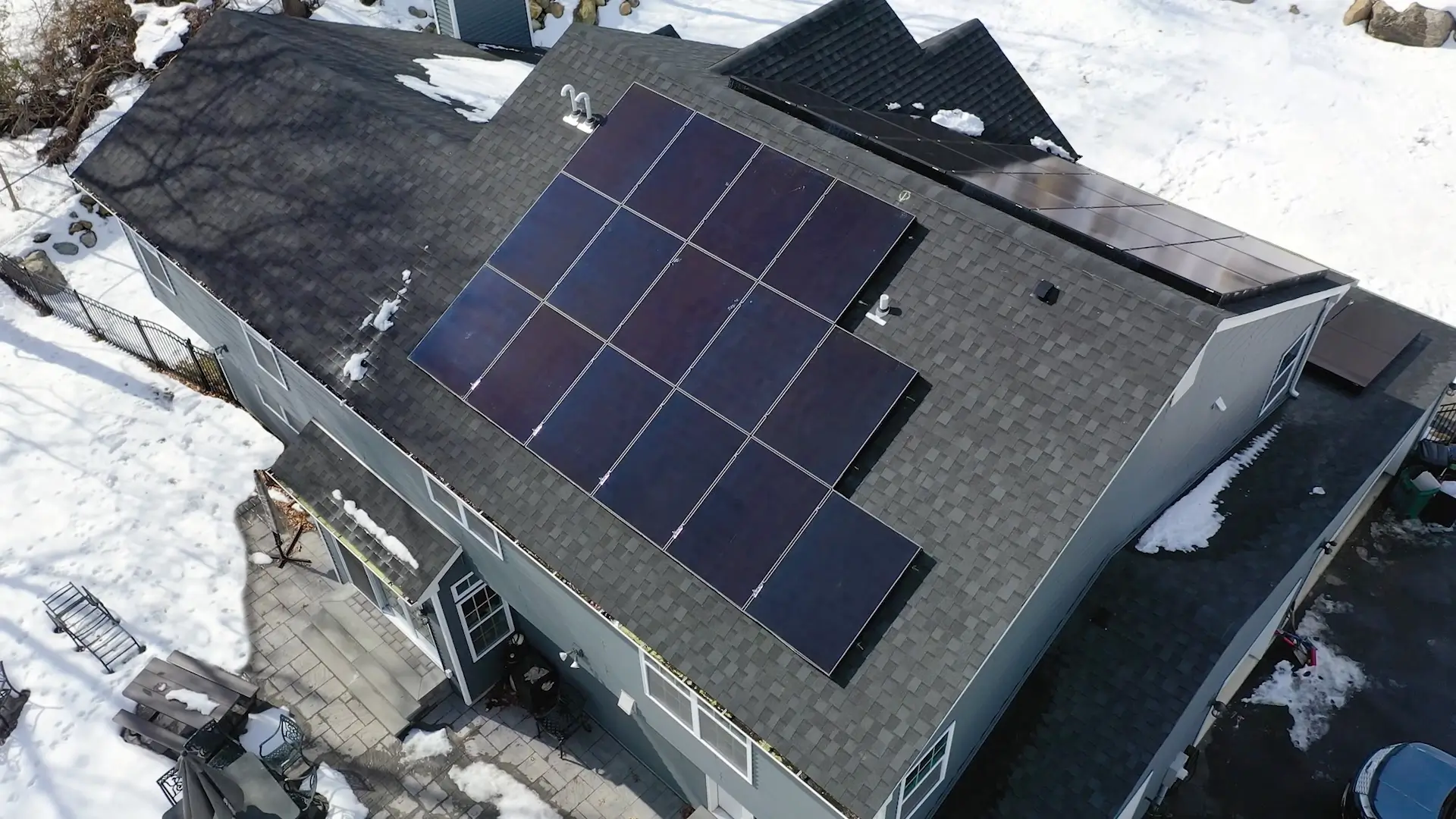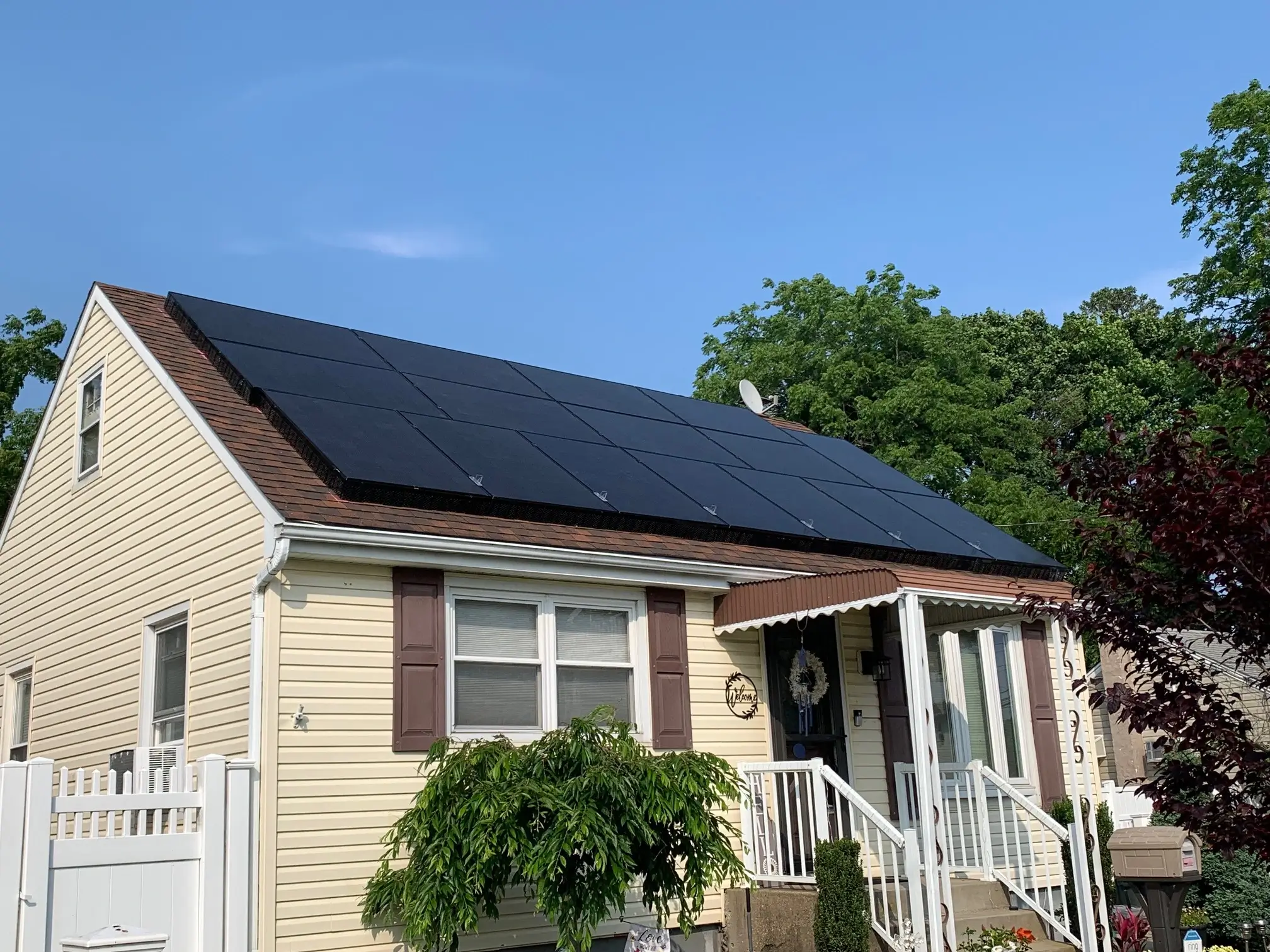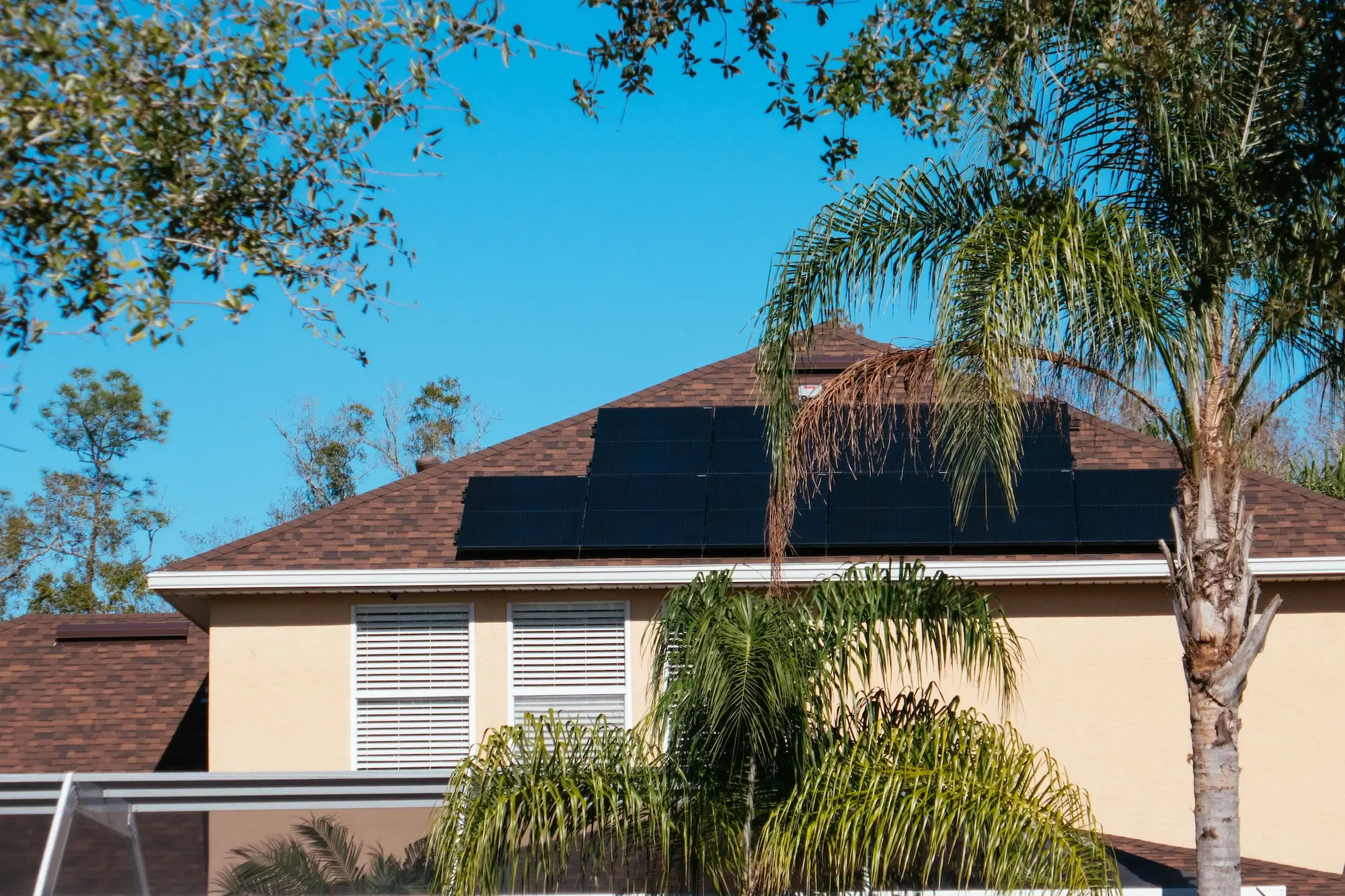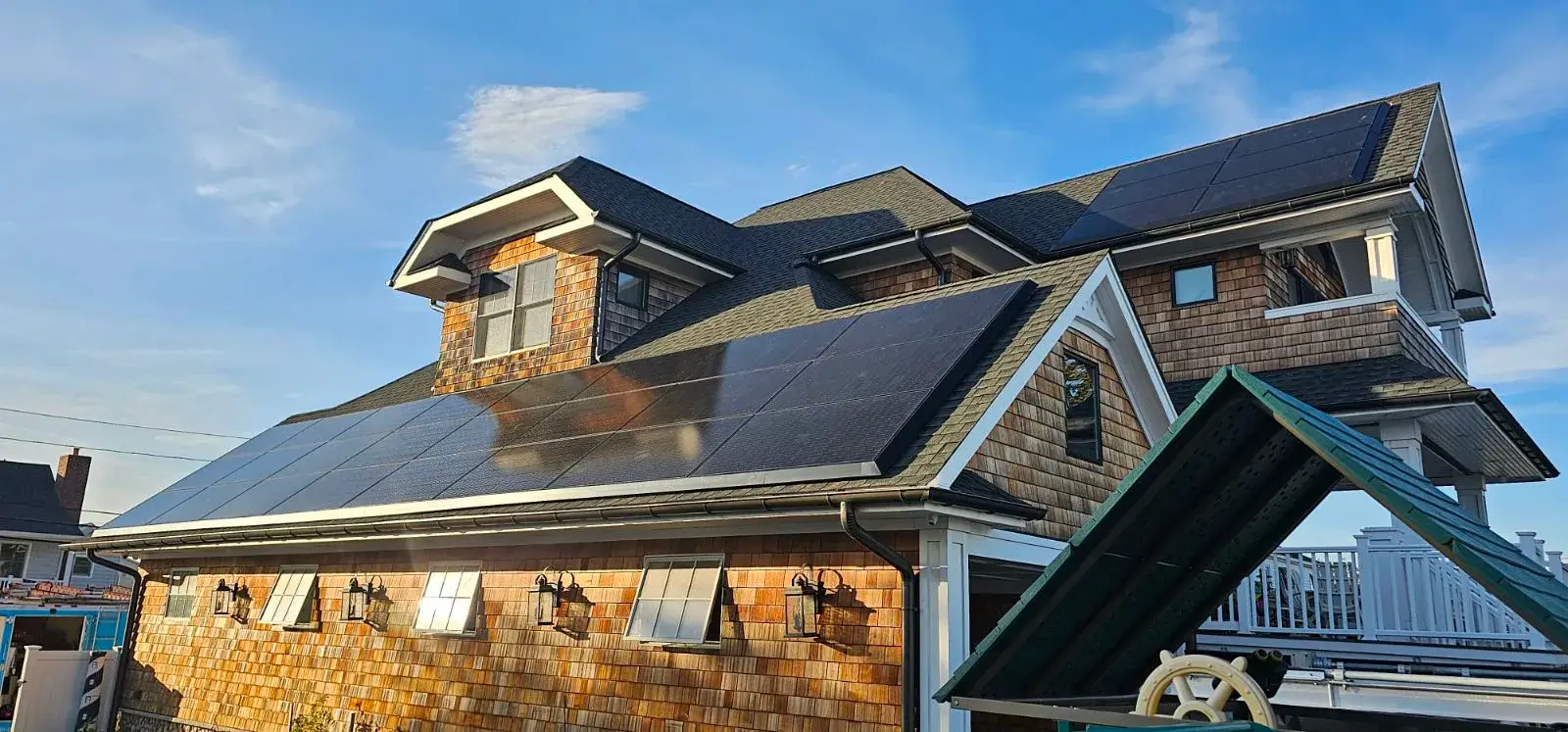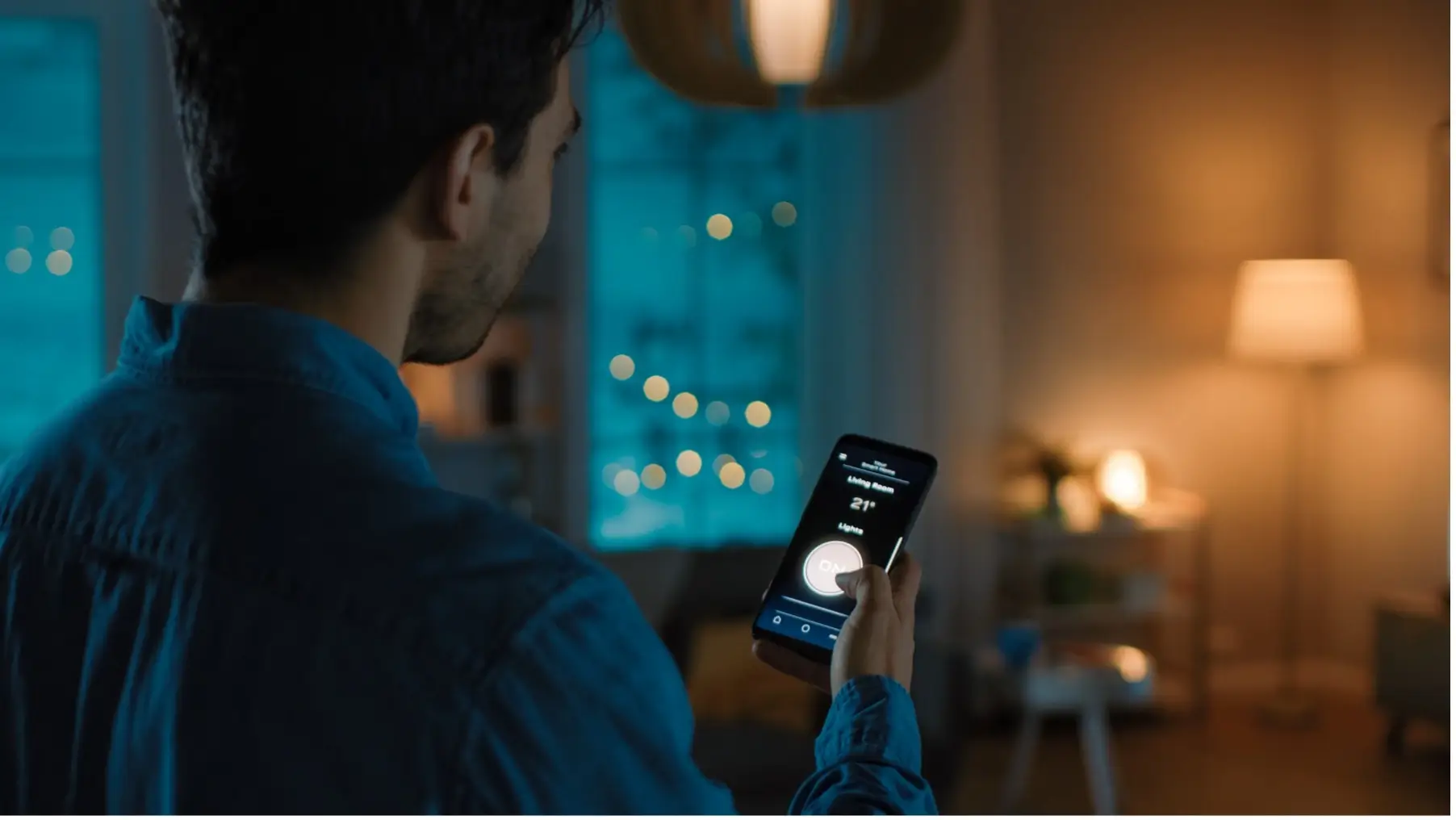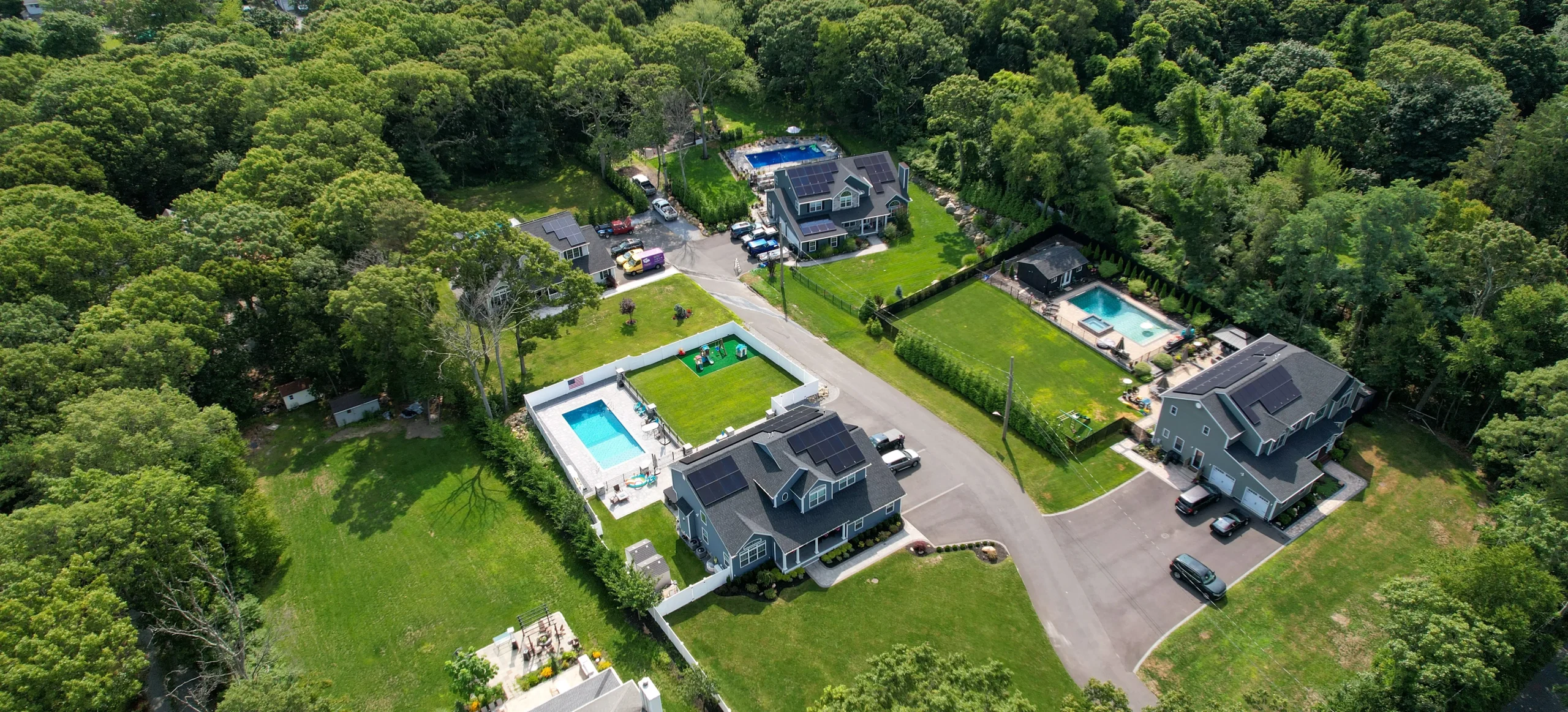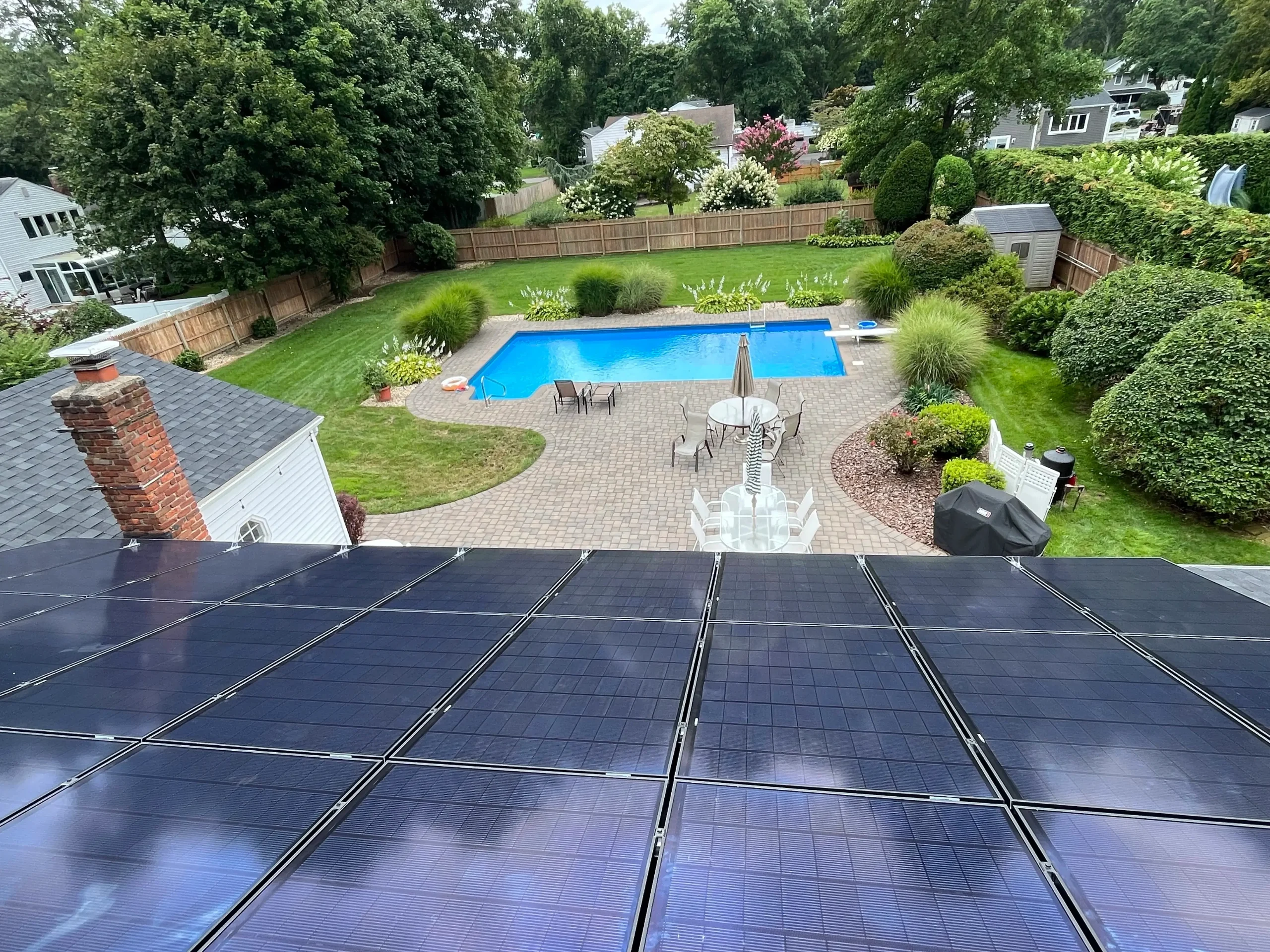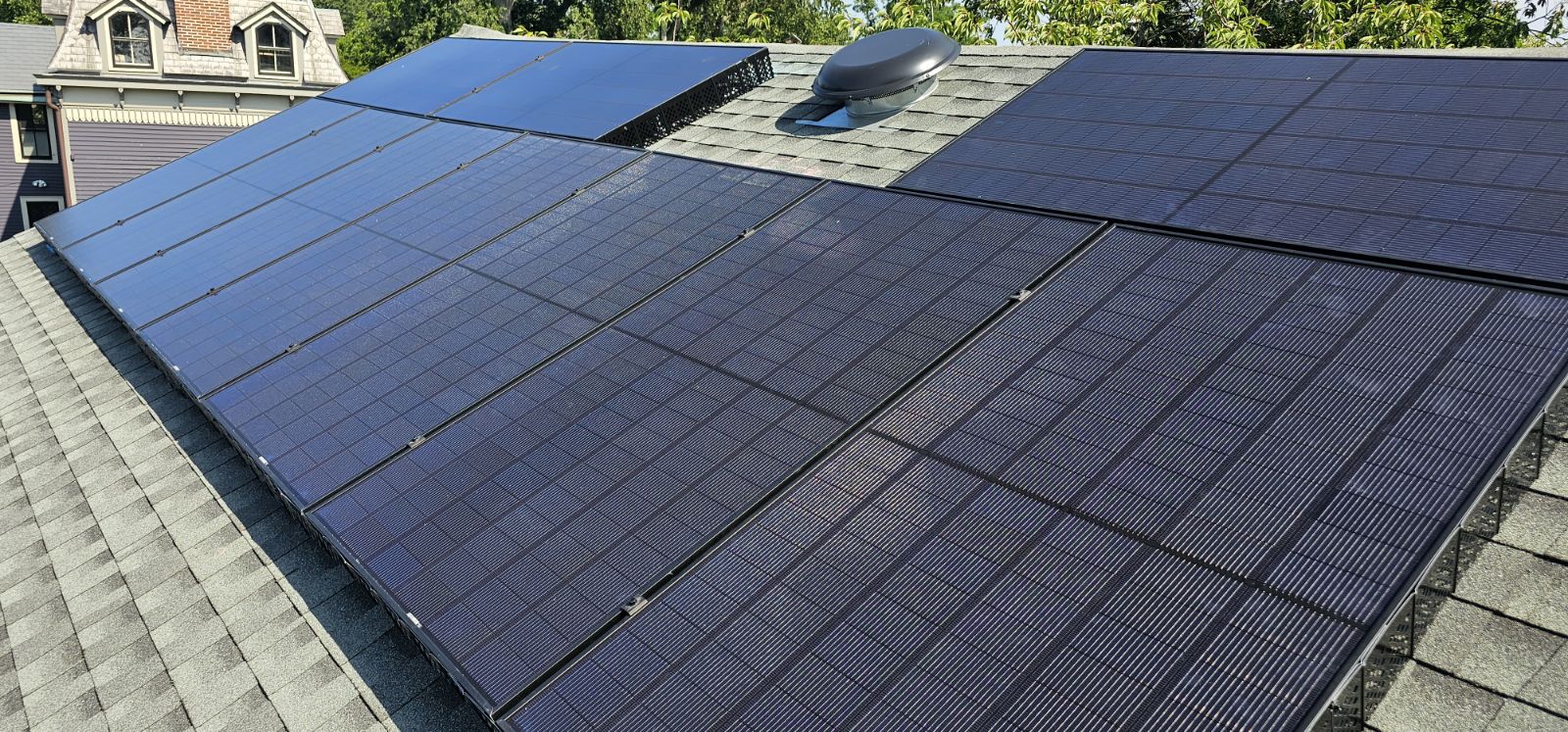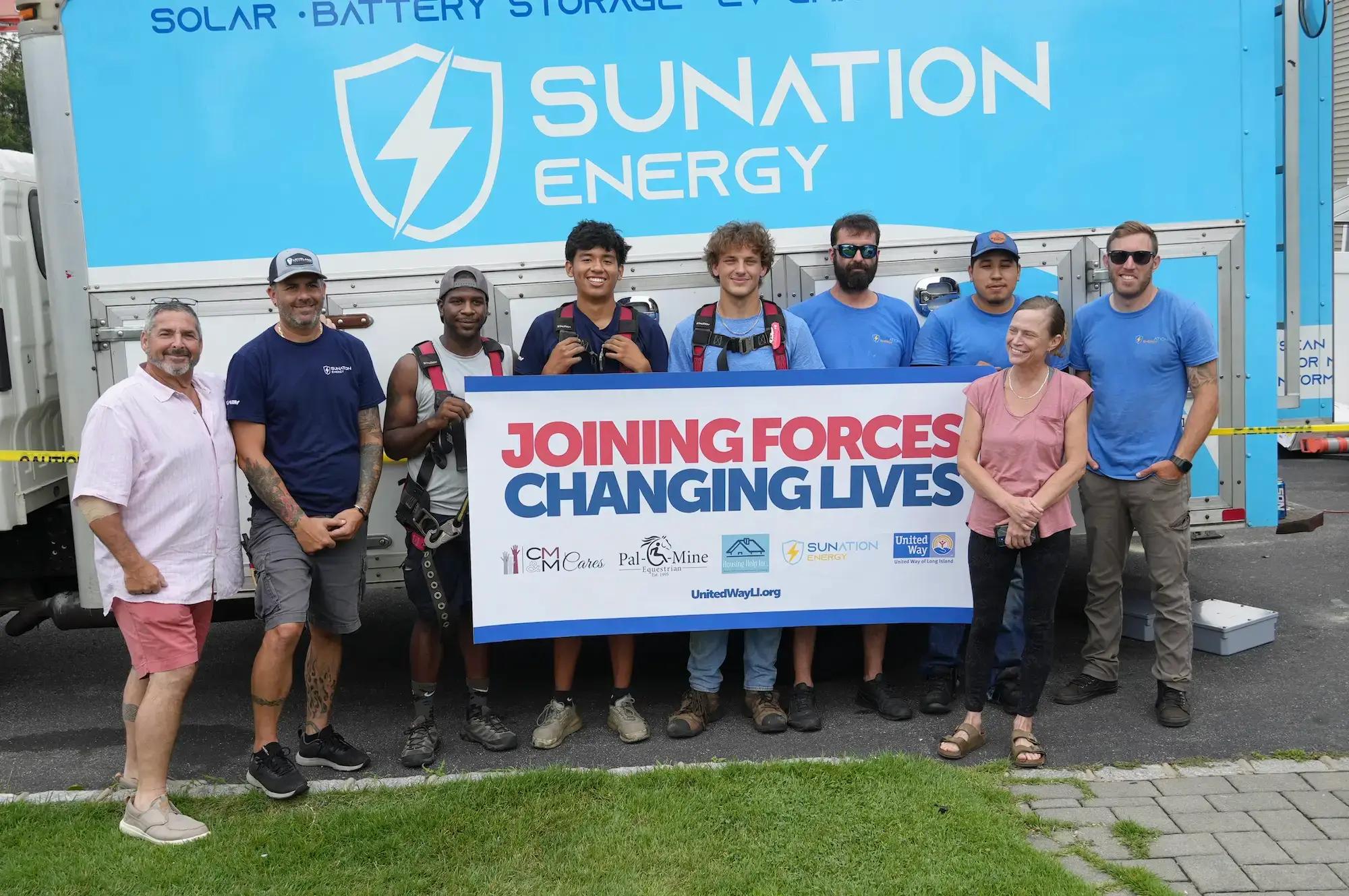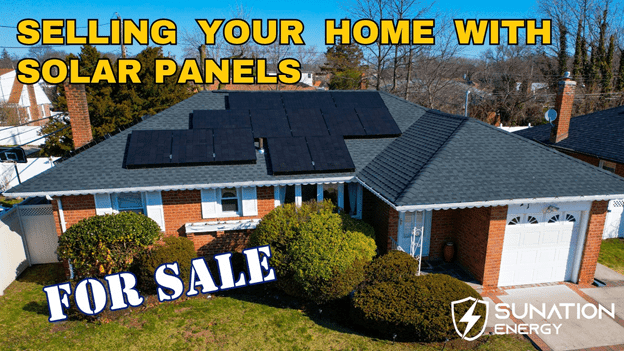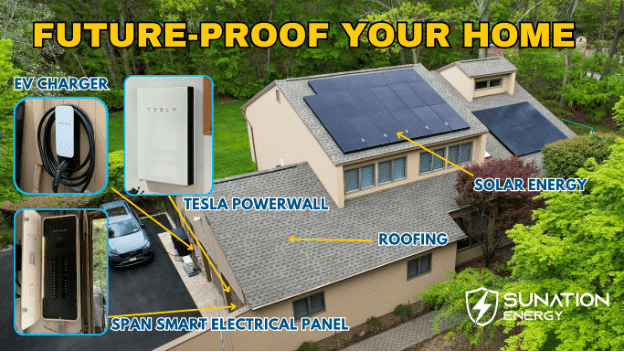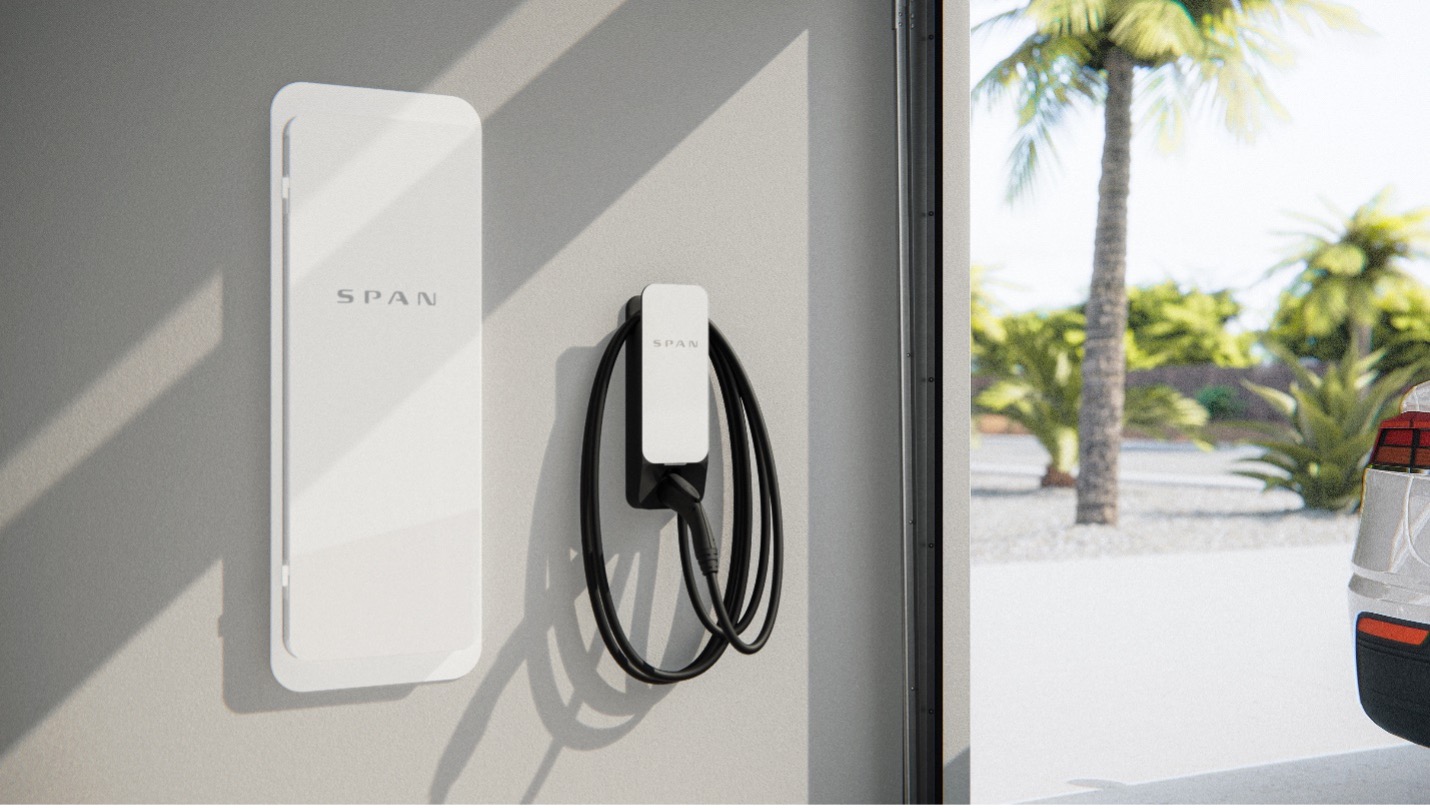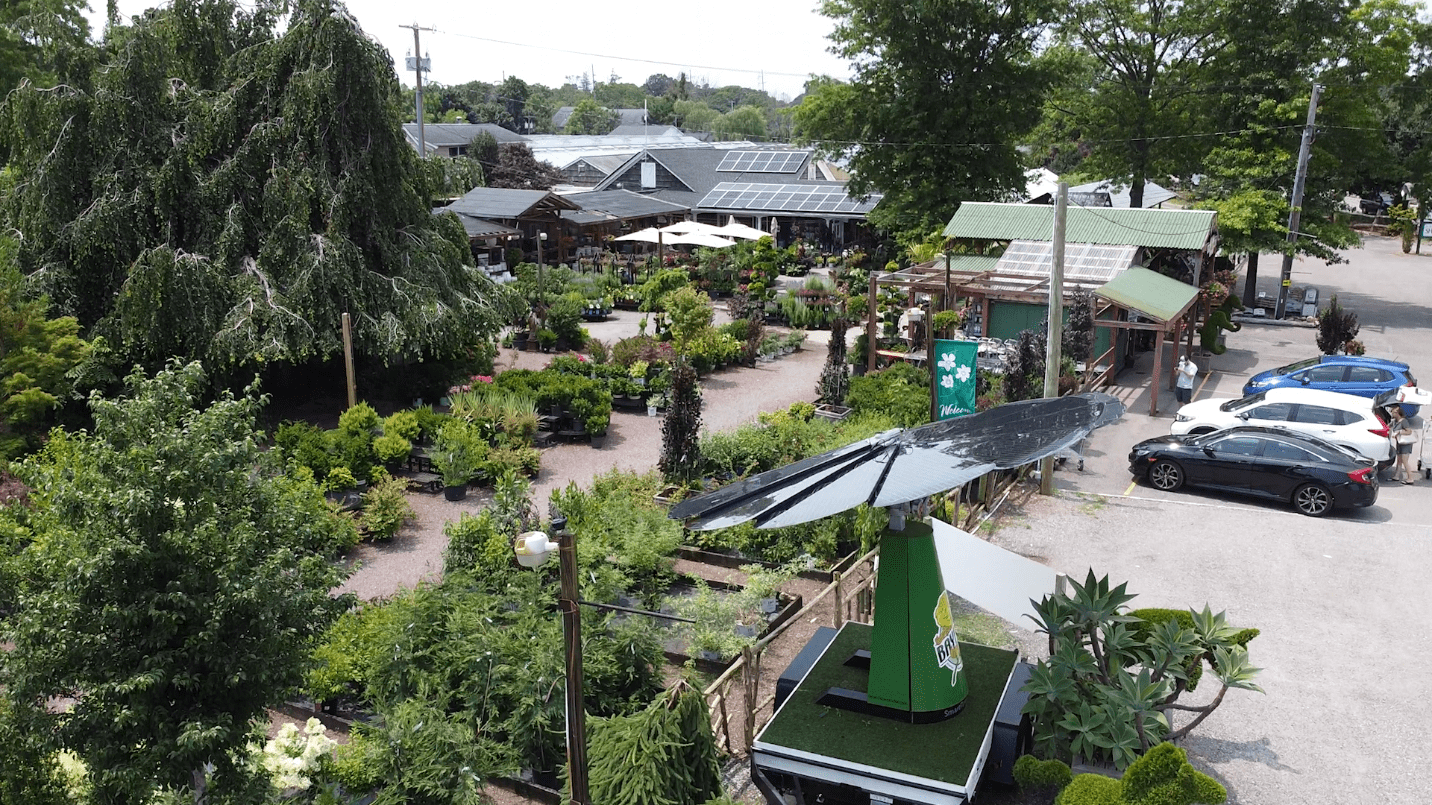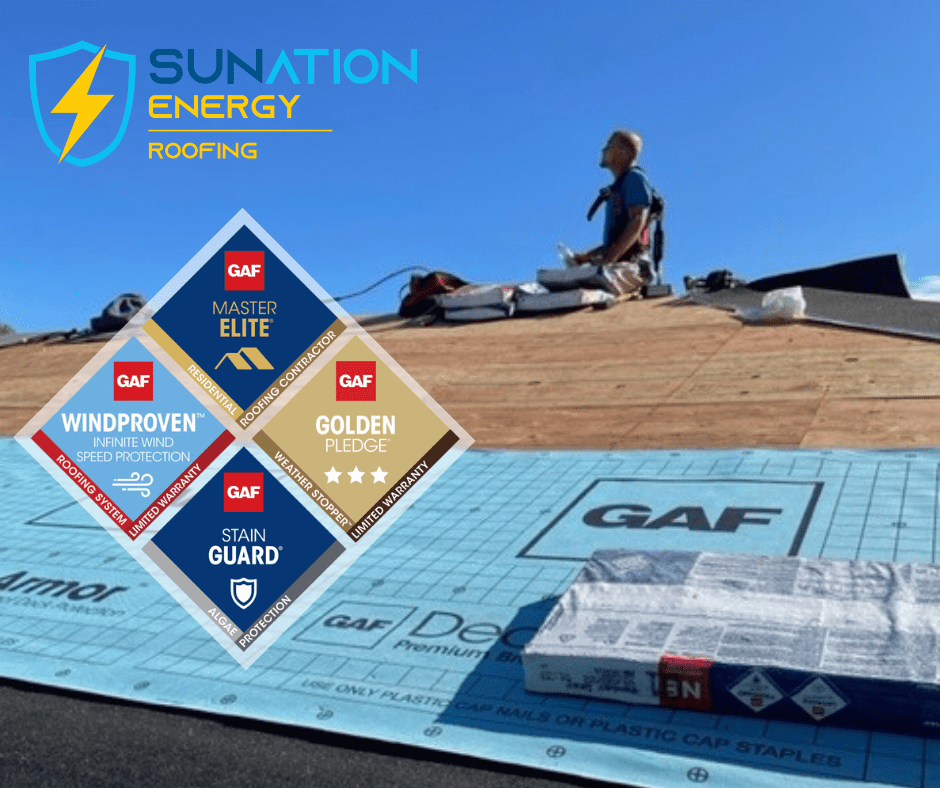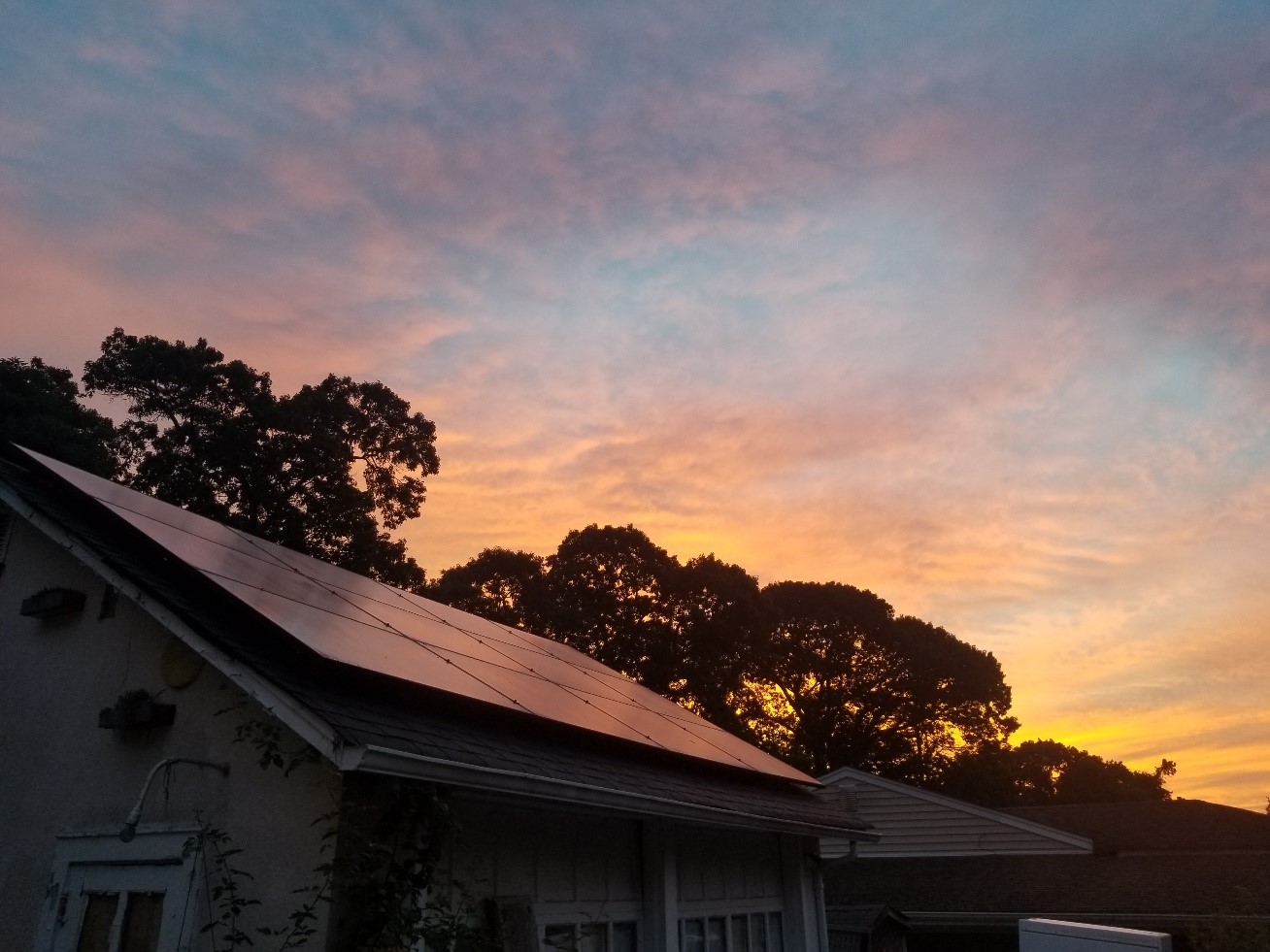
As the name would suggest, solar panels produce clean, renewable energy by taking in light from the sun during the day and transforming it into electricity for your home. There’s just one question. Since your home and appliances need energy around the clock, can you still get electricity from your solar panels when the sun isn’t out?
The short answer to this question is yes, you absolutely can. Providing solar energy to your home is a team effort and it takes solar panels working together with the rest of the solar array and the local power grid to keep the power flowing in your home, whether it’s at night or on cloudy, rainy, or even snowy days.
How Solar Panels Work
In order for solar panels to generate energy, they need to work with other parts of a solar array, or a solar energy system, that together can power your home. When solar panels are exposed to sunlight, preferably direct sunlight, the panel’s photovoltaic cells, or PV cells, absorb the light which gets created into electrical charges or electrons.
From there the panels transfer the newly created direct current, DC, electricity to an inverter installed at your home. Here it is converted into alternating current, AC electricity which is what’s used to power your lights, appliances, and other devices.
Before that electricity is used, however, it’s sent out to the power utility where it circles back to be used by you. The more energy your system creates, the less you need to rely on the power plant to create energy for you, and the lower your monthly electricity bill can be. It’s important to keep in mind that the more energy your home uses, the more energy you will need to create to keep offsetting your energy costs.
How Solar Panels Work at Night
If that’s how solar panels work when the sun is out, how does solar work at night? While it’s true that at night the sun’s rays can no longer reach your solar panels, the energy they previously created can be used to keep the lights on and your appliances running.
Throughout the year your energy use will change, as will the amount of energy your solar panels create. At times when your solar array is creating more energy than you’re using, you can take that excess electricity and bank it for energy credits with your energy utility to use later, or what we call net metering.
Since your home is still tied to the grid, you can power your home all day and all night long while still enjoying the benefits of decreasing your energy costs and pollution. When you produce more energy than you need, you can have energy credits available for when your solar isn’t actively generating electricity, like at night. You only pay the difference between what electricity you’ve used and what you’ve created with your energy credits.
When your solar system is generating so much extra energy during a longer time period, like the spring when daylight hours start increasing, you can even use those banked energy credits towards offsetting your increased energy use during the summer when the air conditioner is blasting, or during the winter when the daylight hours start to decrease. This is why getting a new solar system installed by the spring is ideal, so you can start banking those energy credits for the rest of the year.
Solar Battery Storage
This energy system works great when the grid is up and running, but what about when the grid goes down? Can solar panels still work to power your home then? Yes, they can.
Just like with the inverter mentioned above, solar panels need to work with additional energy components to keep the lights on and the electricity flowing, even when there’s a power outage. That’s where backup energy storage batteries come into play.
When homeowners add on an energy battery, like the Tesla Powerwall battery, electricity from your solar panels can be stored to be used in emergencies until the grid is back up. Should your home lose power during a storm or blackout, the Tesla Powerwall will automatically take over and start providing stored solar energy to your home. Through the battery’s free app, you’ll be able to track how much electricity you have and approximately how many hours of use you have left, depending on how many lights and appliances you’re running. During the day, your solar panels can recharge the battery until power from the grid is restored.
Do Solar Panels Work on Rainy or Cloudy Days?
We know solar panels work when exposed to direct sunlight, but what about indirect light, or when the weather isn’t so sunny? There’s no need to be relying on your energy credits or storage battery just yet.
Even on cloudy or rainy days, sunlight is still able to reach your solar panels and generate electricity for your home. Just as you can see the difference in light between a rainstorm during the day compared to as night, so too can your solar panels. As long as some light is reaching them, they can produce energy, just at a lower rate.
While rain may be seen as a negative when it comes to solar energy, it’s actually a benefit. Since solar panels are installed at an angle to get the optimal direct light from the sun, the rain helps to keep the solar panels clean and rinse off any dust or dirt that may have collected.
Do Solar Panels Work in the Winter on Snowy Days?
Even though the days are shorter in the winter, solar is still working. In fact, the colder temperatures can actually help. When the temperature drops, the electrons in the PV cells found in your solar panels can work better than when they’re hotter. They do their best work in the colder weather.
When it snows, all it takes is a little patience. When snow is covering your solar panels, it’s decreasing the amount of sunlight that gets through, but that won’t last. As the sun starts to melt the snow, the tilted angle of the panels combined with installed solar roof snow brakes on your system will work to break up the snow and help it to slide off. Then your panels are ready to create electricity again.
Contact SUNation For Service
Homeowners should not be clearing snow or dirt from their solar panels themselves. Snow will fall off on its own and rain and wind can help to keep your system clean of debris. However, if there is a concern your solar array isn’t producing as much as it should, you can contact the SUNation Energy Service Department for assistance. Our in-house team is available to check the status of your solar panels, assess if any action is required, and provide a trained technician if needed. For your safety and the lifespan of the solar panels, please do not service your own solar panels. Contact our team for additional details.
Around The Clock Solar Benefits
Whether day or night, summer or winter, know your solar panels are working hard to help produce environmentally friendly energy and keep your energy expenses low. By adding a battery like the Tesla Powerwall, you can give yourself even more protection and keep the lights on no matter what the weather brings.
Contact our friendly team of energy experts today to get started with a customized quote or schedule a free no-obligation consultation. Call our Long Island office at 631-750-9454 or contact us online.
